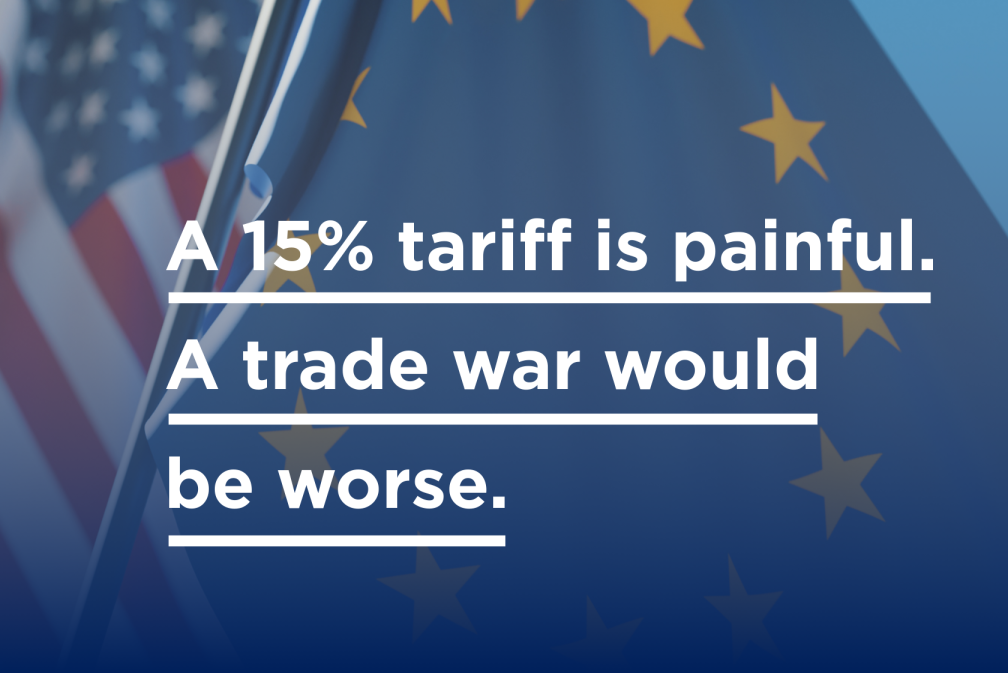Fortunately, the public and private sector are broadly aligned on solutions for this issue and the vital role cooperation plays. The Letta report continues: ‘Going forward, the digital transformation of Europe’s economy and the empowerment of local communities as engines of economic growth demand significant investments in infrastructures and digital skills. The foundation of a modern, innovative economy accessible to all is high-speed, reliable, and secure connectivity, underpinned by sustainable energy sources and strong digital skills. Collaborative efforts among governments, the European Union, and the private sector are essential to construct a resilient digital network, accelerate the digitization of public services and ensure that everyone has above-basic digital skills.’
Likewise, in its Attractiveness of Europe: Agenda for Action 2024-2029, AmCham EU puts forward recommendations for supporting the development of a qualified workforce in Europe:
- Facilitate cooperation between industry, the education sector and Member States to develop practical internships, apprenticeships and work experiences for students at any stage of learning;
- Support business-led upskilling and reskilling initiatives, and incentivise employers to set up training schemes, including through tax incentives; and
- Increase investment in training for basic and advanced digital skill as well as support science, technology, engineering and mathematics programmes.
Many AmCham EU members are already holding up their end of the bargain and implementing pioneering initiatives that prepare current and next-generation talent for the future:
In 2016, Apple opened its first Developer Academy in Europe in San Giovanni a Teduccio, a disadvantaged suburb east of Naples. Like the company’s other academies, it aims to help higher education institutions integrate iOS development into their curricula through courses that require no prior coding experience. In partnership with the University of Naples Federico II and with support from the European Cohesion Policy, the Apple Naples Developer Academy offers the highly selective, free, nine-month programme to students from a wide range of backgrounds, both local and international. Since opening, nearly 2,000 students have graduated with the tools and training to find and create jobs in the iOS app economy, which supports more than 2.4 million jobs across Europe.
Across Europe, only 22% of all technology roles are filled by women. To help make the industry inclusive for all, Oracle spearheads several initiatives in Spain to change the status quo. Among them are: Oracle4Girls, which seeks to inspire girls between the ages of four and 16 to study science, technology, engineering and math (STEM); Reinventa-Tech, a free, six-month professional development programme that enables unemployed women to reskill and earn certifications in data analysis/data science, Java development, digital marketing, and database and cloud operation; and Generation Oracle, which helps early-in-career and returning staff from all kinds of backgrounds – including those changing careers, veterans and neurodiverse talent – explore, train and grow their skills in sales, solution engineers or consulting. Through these and other inclusive initiatives, Oracle is supporting a more diverse in-house team and technology industry, in Spain and across Europe.
As the EU seeks to increase the number of renewable energy projects, so too does its need for qualified personnel ready to fill specialised positions. In response, AES Bulgaria has partnered with Varna Technical University in Bulgaria to prepare the sector’s future talent while safeguarding the future of carbon-free energy. Since 2022, the AES team at Saint Nikola Wind Farm has worked with university professors to manage internship and scholarship programmes, deliver lectures and presentations, participate in university activities and facilitate site visits. Through this collaboration, students have access to expert knowledge about wind power plant construction and operations, engineering processes, industry trends and professional opportunities, as well as hands-on experiences on site. In this way, the initiative raises awareness about the possibilities in the wind energy industry and builds mentoring relationships that can guide students to a deeper understanding of – and a fulfilling career in – the business.
Read more about AmCham EU members’ skills training, diversity, inclusion and equity initiatives on Invested in Europe, our platform for stories of American companies’ positive impacts on communities across the continent.



